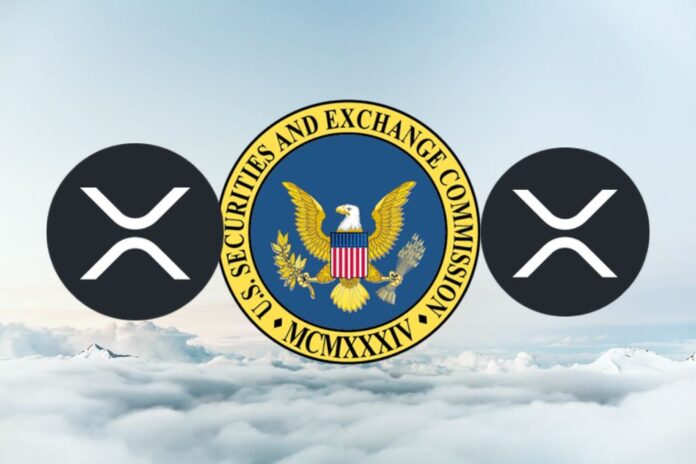As the October 7 deadline approaches, the anticipation surrounding a potential appeal by the U.S. Securities and Exchange Commission (SEC) in the ongoing case against Ripple is intensifying. This case, which centers on the status of XRP, Ripple’s native cryptocurrency, as an unregistered security, has caused fluctuations in the value of XRP due to market uncertainty.
Prominent cryptocurrency attorney Fred Rispoli has commented on the likelihood of the SEC filing an appeal, suggesting that the chances of such an outcome have increased. Rispoli noted that Ripple and the SEC have agreed to deposit 111% of the disputed amount in a trust. This amount would be held until 30 days after the October 7 deadline or until the appeal is resolved.
According to Rispoli, this arrangement indicates the SEC’s hesitancy to disclose its intentions fully. He estimates that there is currently a 60:40 likelihood of the SEC moving forward with an appeal. As this deadline nears, market analysts and legal experts continue to debate the legal grounds the SEC might focus on in the event of an appeal.
Ripple Case Background and Legal Developments
The legal battle between Ripple and the SEC dates back to 2020 when the SEC accused Ripple of selling XRP as an unregistered security. The case has been a key issue in the broader debate over how cryptocurrencies are classified under U.S. securities laws.
On July 13, 2023, Judge Analisa Torres ruled that programmatic sales of XRP did not meet the criteria of security as defined by the Howey Test, a legal standard used to determine whether a transaction qualifies as an “investment contract.”
This ruling marked a significant development in Ripple’s favor. However, in August 2023, the SEC sought to file an interlocutory appeal to challenge this decision before the case concluded. Judge Torres denied this motion in October, effectively postponing any appeal until after the final resolution of the trial.
Despite the recent legal developments, Ripple’s Chief Legal Officer Stuart Alderoty emphasized in September 2023 that while the case against Ripple may be nearing its conclusion, the SEC’s “fair notice” argument could still be a critical issue in other ongoing cryptocurrency cases.
The SEC’s continued legal actions in cases such as SEC vs. Binance further highlight the unresolved regulatory landscape concerning digital assets, as the agency continues to argue that several cryptocurrency tokens are securities in secondary markets.
XRP Price Movement Amid Legal Uncertainty
The legal uncertainty surrounding Ripple’s case continues to impact XRP’s price performance. As of now, the digital asset is trading at $0.5868, marking a 0.78% decrease over the last day. The market appears to be in a state of cautious anticipation as investors await the SEC’s next move.
Despite the current uncertainty, some analysts remain optimistic about the token’s future price movements. One such analyst, Altstreet Bets, has shared an optimistic forecast for XRP, predicting that it is on the brink of a significant upward trend that could play out in 2024.
Using the Elliott Wave theory, which tracks market cycles through a series of price movements, Altstreet Bets believes that XRP is currently in the early stages of a broader rally.
We are on twitter, follow us to connect with us :- @TimesTabloid1
— TimesTabloid (@TimesTabloid1) July 15, 2023
According to his analysis, XRP is now in the first phase of an Elliott Wave cycle (Wave i), which suggests a minor price correction to around $0.55 could occur before a stronger upward rally begins. He predicts that this rally could push the token’s price closer to the $1 mark in the coming months, with further corrections expected before a sustained bullish trajectory is established.
While the market waits for the SEC’s decision and legal proceedings to unfold, the cryptocurrency community continues to monitor XRP closely, speculating on its long-term potential amid a shifting regulatory environment.
The SEC’s next steps in this case may have broader implications for the cryptocurrency industry as a whole, particularly in terms of regulatory clarity for digital assets in the United States.
Disclaimer: This content is meant to inform and should not be considered financial advice. The views expressed in this article may include the author’s personal opinions and do not represent Times Tabloid’s opinion. Readers are urged to do in-depth research before making any investment decisions. Any action taken by the reader is strictly at their own risk. Times Tabloid is not responsible for any financial losses.
Follow us on Twitter, Facebook, Telegram, and Google News



